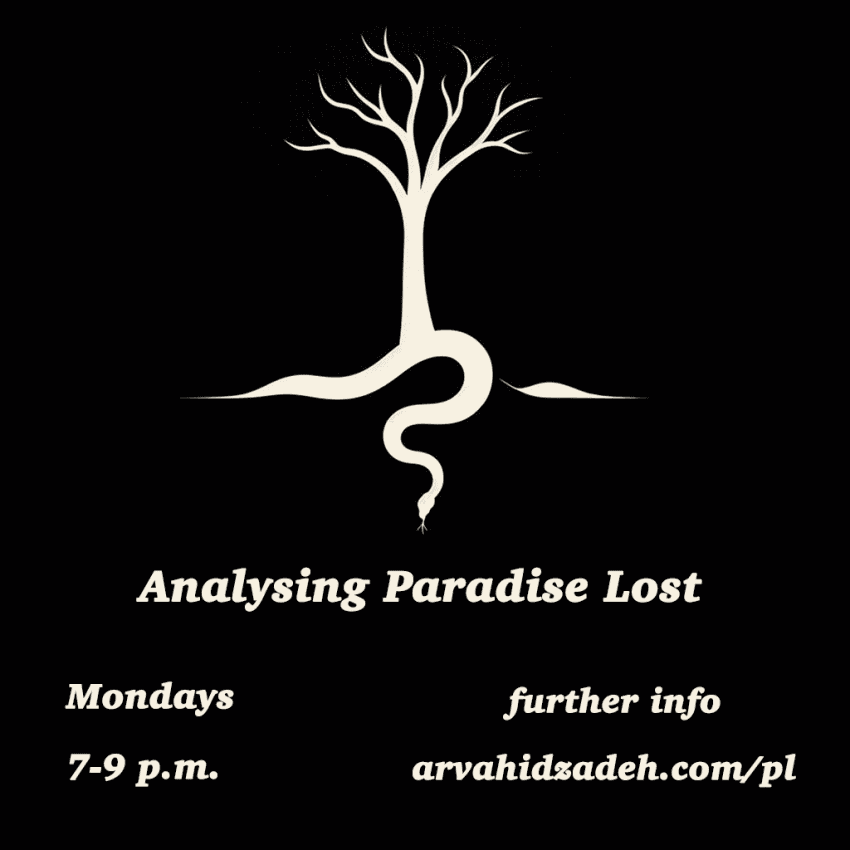Course Overview
This course offers a meticulous and insightful examination of John Milton’s magnum opus, Paradise Lost. We shall embark on an intellectual odyssey through the poem’s intricate themes, its sublime structural design, its richly drawn characters, and its exquisite literary artistry, while also considering the historical and theological contexts that informed its composition. Each session will illuminate various aspects of this epic work, fostering a deep and nuanced appreciation of its monumental significance and its enduring resonance within the tapestry of English literature.
Session 1: Introduction to Paradise Lost
– Overview of the course and objectives.
– Introduction to John Milton and his historical context.
– Summary of Paradise Lost: plot and major themes.
– Discussion of the epic genre and Milton’s place within it.
Session 2: The Structure and Style of Paradise Lost
– Examination of the structure of the poem: books and divisions.
– Analysis of Milton’s use of blank verse and epic conventions.
– Discussion of the poem’s narrative voice and epic similes.
– The role of classical and biblical influences in Milton’s style.
Session 3: Theological and Philosophical Contexts
– Exploration of the theological themes in Paradise Lost: free will, predestination, and the nature of evil.
– Analysis of Milton’s treatment of Christian doctrine and how it reflects his personal beliefs.
– Discussion of the philosophical questions raised in the poem.
Session 4: The Fall of Satan: Books 1 and 2
– Detailed analysis of Satan’s character and his rebellion against God.
– Examination of the depiction of Hell and its significance.
– Analysis of the imagery and symbolism associated with Satan and his fallen angels.
– Discussion of Satan’s speeches and their rhetorical impact.
Session 5: The Creation and the Garden of Eden: Books 3 and 4
– Analysis of the depiction of the creation of the universe and the Garden of Eden.
– Examination of the portrayal of God and the Son.
– Discussion of the significance of the Garden of Eden and its symbolic meaning.
– Analysis of the characters of Adam and Eve and their roles in the narrative.
Session 6: The Temptation and Fall of Man: Books 5 and 6
– Detailed analysis of the temptation of Eve and the subsequent fall of Adam and Eve.
– Examination of the role of Satan’s deception and its consequences.
– Discussion of Milton’s portrayal of temptation and sin.
– Analysis of the impact of the fall on Adam and Eve’s relationship and their views on their own existence.
Session 7: The Role of the Son and Redemption: Books 7 and 8
– Examination of the role of the Son in the narrative and his role in the cosmic order.
– Analysis of the prophecy and the promise of redemption.
– Discussion of the significance of the Son’s role in the context of Christian theology.
– Analysis of the portrayal of the creation of man and the importance of divine providence.
Session 8: The Epic Journey: Books 9 and 10
– Detailed analysis of the epic journey undertaken by Satan and its impact on the narrative.
– Examination of the conflict between good and evil and its manifestation in the poem.
– Discussion of the significance of the epic journey as a literary device.
– Analysis of the consequences of the fall and the subsequent punishment.
Session 9: The Theological Debate: Books 11 and 12
– Examination of the theological and moral debates in the final books of the poem.
– Analysis of the resolution of the narrative and the consequences for humanity.
– Discussion of the themes of repentance, forgiveness, and the possibility of redemption.
– Analysis of the poem’s conclusion and its implications for the reader.
Session 10: Milton’s Use of Symbolism and Allegory
– Exploration of the symbolic and allegorical elements in Paradise Lost.
– Analysis of key symbols and their significance: the tree of knowledge, the serpent, and the fall of man.
– Discussion of how Milton uses allegory to convey deeper meanings and themes.
– Examination of the interplay between symbolism and narrative.
Session 11: The Characterisation of Adam and Eve
– In-depth analysis of the characters of Adam and Eve.
– Examination of their motivations, development, and roles in the narrative.
– Discussion of their portrayal as archetypal figures and their significance in the poem.
– Analysis of their responses to temptation and their ultimate fall.
Session 12: The Role of Epic Conventions and Classical References
– Examination of how Milton employs epic conventions in Paradise Lost.
– Analysis of classical references and their impact on the poem’s structure and themes.
– Discussion of Milton’s engagement with classical epic traditions and his innovations.
– Exploration of the poem’s relationship with works like Virgil’s *Aeneid* and Homer’s epics.
Session 13: The Reception and Influence of Paradise Lost
– Overview of the reception of Paradise Lost from its publication to the present day.
– Analysis of its influence on later literature, art, and culture.
– Discussion of critical interpretations and adaptations of the poem.
– Examination of Milton’s legacy and the continued relevance of Paradise Lost.
Session 14: Final Review and Synthesis
– Review of the key themes, characters, and literary techniques discussed throughout the course.
– Synthesis of the poem’s overall impact and significance.
– Discussion of students’ insights and interpretations.
– Final reflections on Paradise Lost and its place in the literary canon.
